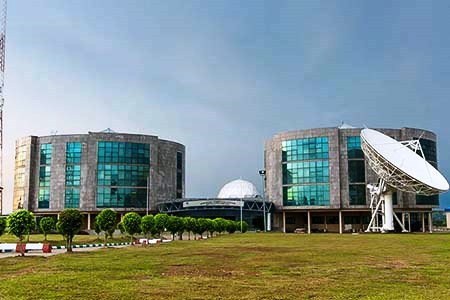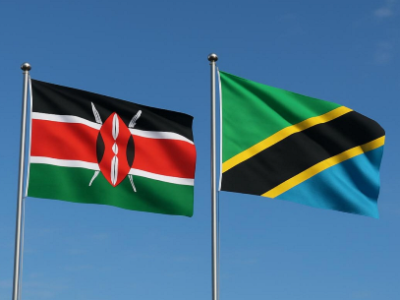The Saudi Arabian Embassy in Nigeria has initiated discussions with Nigerian Communications Satellite Limited (NIGCOMSAT) to host four television channels on the NigComSat-1R satellite. This development follows a recent visit by Mohammed Alsahabi, Saudi Arabian Head of Media, to the NIGCOMSAT Ground Control Station, where he was welcomed by Abiodun Attah, Executive Director of Technical Services, on behalf of the Managing Director and CEO, Mrs. Jane Egerton-Idehen.
RELATED: NIGCOMSAT CEO says launch of NigComSat-2 will boost Nigeria’s space and communication capabilities
The meeting highlighted the shared commitment of both parties to enhance media collaboration and expand broadcasting capabilities using advanced satellite technology. By hosting four Saudi television channels on NigComSat-1R, the initiative aims to improve access to diverse content in Nigeria and beyond, while also strengthening cultural ties between Saudi Arabia and Nigeria.
During the discussions, Alsahabi emphasized the embassy’s eagerness to utilize NIGCOMSAT’s cutting-edge satellite infrastructure to broadcast high-quality programming. He pointed out the significance of this initiative in fostering cultural exchange and enriching viewers’ experiences. “There is a significant historical connection between the people of Saudi Arabia and Nigeria—culturally, religiously, and more. Unfortunately, Saudi Arabia is primarily known for Hajj,” Alsahabi remarked.
Egerton-Idehen reaffirmed NIGCOMSAT’s dedication to partnerships that boost communication and connectivity across Africa. She stated that the collaboration aligns with NIGCOMSAT’s vision of becoming a leading satellite service provider in the region.
This partnership is expected to bring substantial benefits to the broadcasting sector, contributing to Nigeria’s media growth while offering Saudi Arabian channels a robust platform with reliable transmission and broad coverage via NigComSat-1R.
Both parties agreed to continue technical and operational discussions, aiming to launch the channels soon. This marks a significant step towards enhancing media diversity and accessibility in Nigeria and paves the way for further international collaborations in the telecommunications sector.




























